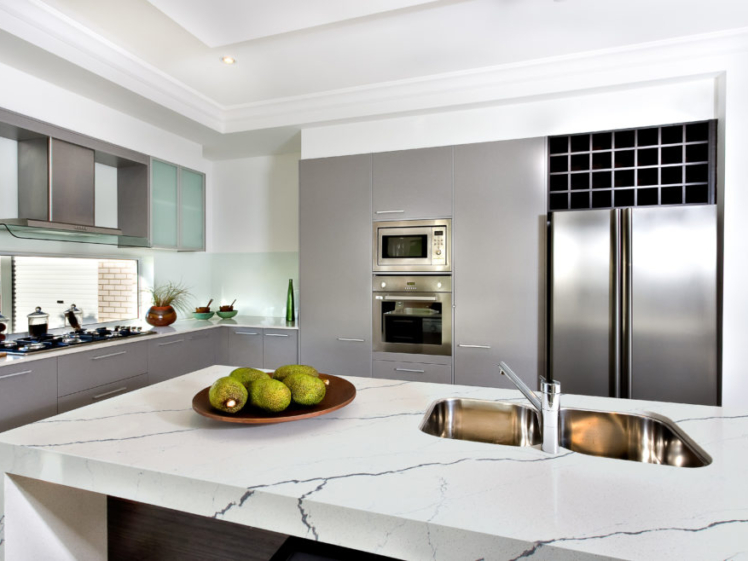The Pros and Cons of Honed Quartz Countertops: Staining, Scratching, Etching and More
Pros and Cons of Honed Quartz Countertops
Honed quartz countertops have become increasingly popular in recent years due to their natural appearance and durability. While they can be a beautiful addition to your home, it’s important to be aware of the potential problems associated with this type of countertop material.
Staining – One of the most significant issues with honed quartz countertops is staining. While quartz is a non-porous material that resists stains, honed surfaces can be more susceptible to staining than polished ones. This is because the honing process opens up the pores of the stone, making it easier for liquids to penetrate and cause stains. To avoid this problem, it’s essential to clean up spills as soon as possible and use a sealant to protect the surface from potential stains.
Scratching – Another issue with honed quartz countertops is scratching. While quartz is a durable material, honed surfaces can be more prone to scratching than polished ones. This is because the honing process removes the glossy surface layer of the stone, which can make it more susceptible to scratches and scuffs. To avoid scratching your honed quartz countertops, it’s important to use cutting boards and avoid placing hot pots and pans directly on the surface.
Maintenance – Maintaining honed quartz countertops can be more challenging than maintaining polished ones. They need to be cleaned regularly and “maybe” sealed to prevent staining . To clean honed quartz, you should use a mild soap and warm water. Avoid using abrasive cleaners, as they can scratch the surface. Additionally, you should seal your honed quartz countertops at least once a year to protect them from potential stains but only certain brands recommend it.
Etching – Another problem with honed quartz countertops is etching. Honed quartz can be more susceptible to etching than polished quartz. Etching occurs when acidic substances, such as lemon juice or vinegar, come into contact with the surface of the stone and cause a chemical reaction that eats away at the surface. To avoid etching your honed quartz countertops, it’s essential to clean up spills as soon as possible and avoid using acidic cleaners.
Cost – Lastly, honed quartz countertops can be more expensive than polished ones due to the extra labor and materials required to create the honed finish. However, the natural appearance and durability of honed quartz can make it a worthwhile investment for many homeowners.
In conclusion, honed quartz countertops can be a beautiful and durable addition to your home, but they do come with potential problems that need to be addressed. Staining, scratching, maintenance, etching, and cost are all factors to consider when choosing a countertop material. By being aware of these issues and taking proper care of your honed quartz countertops, you can enjoy their beauty and functionality for years to come.
For more information about Quartz Countertops – Click Here

If you have questions or would like an estimate, please text / call Valerie at 714-528-3789 or email at valerie.olivemill@gmail.com


